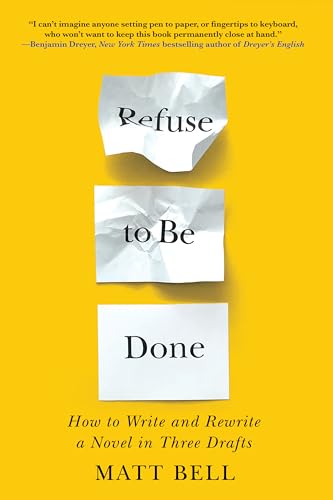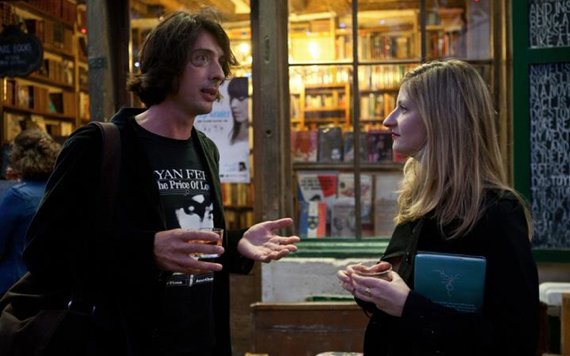
Nikolai Grozni’s debut novel, Wunderkind, is a searing tale of music behind the Iron Curtain, two years before the fall of Communism. Konstantin, a 15 year-old piano prodigy, is a student at the Sofia School for the Gifted, and spends his time raging against the inhumanity of the regime, acting out, rebelling against his teachers, and playing the piano with desperate abandon. It is an outright autobiographical text, Grozni admits; he himself was an accomplished concert pianist in his youth, and studied at the Sofia School for the Gifted in the late 1980s. After stints at the Berklee College of Music and a Buddhist monastery, he obtained his MFA in creative writing from Brown, and currently lives in France.
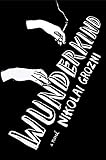 One of the most beautiful things about Wunderkind is its contrasts in tone– like Chopin’s Ballade No 2, which Konstantin takes on, knowing that it is “too elusive, too impossible to measure” even to be meaningfully recorded; it begins with a Mozart-esque simplicity, and then moves into more moody territory, before exploding with rage. Grozni captures the angst of adolescence as Konstantin moves through the sad beauty of Sofia in a way that seems almost romantic; but those passages will be followed by reminders of the inhumanity of the world he lives in. It is a landscape that recalls Ishiguro’s Never Let Me Go — Grozni’s characters are doomed by the system but full of life and hope, scraps of beauty in a dystopian paradise. With a blistering narrative of violence and lyricism, Grozni captures them playing their instruments.
One of the most beautiful things about Wunderkind is its contrasts in tone– like Chopin’s Ballade No 2, which Konstantin takes on, knowing that it is “too elusive, too impossible to measure” even to be meaningfully recorded; it begins with a Mozart-esque simplicity, and then moves into more moody territory, before exploding with rage. Grozni captures the angst of adolescence as Konstantin moves through the sad beauty of Sofia in a way that seems almost romantic; but those passages will be followed by reminders of the inhumanity of the world he lives in. It is a landscape that recalls Ishiguro’s Never Let Me Go — Grozni’s characters are doomed by the system but full of life and hope, scraps of beauty in a dystopian paradise. With a blistering narrative of violence and lyricism, Grozni captures them playing their instruments.
“Nothing is more difficult than to talk about music,” wrote the composer Camille Saint-Saëns of his own attempts at writing music criticism; “it is already tricky enough for musicians, but it is almost impossible for others: even the strongest, most subtle minds lose their way.” Grozni manages to pull off the near-impossible feat of not only writing about music, but of doing so in a way that pushes the reader to the limits of what language can express.
I had a chance to chat with him when he was in Paris to read at Shakespeare & Co.
The Millions: You really nail the anxieties of being a musician in this book. That passage where Konstantin describes the feeling of becoming incredibly self-conscious while performing, and to continue performing you have to forget what you’re doing again — it’s so right on. To a certain extent, when you’re playing the piano, you have to just not think about what you’re doing. How is it for you with writing? Is there a similar call for conscious unconsciousness?
Nikolai Grozni: Absolutely, only in writing it is much more difficult to achieve. When you play an instrument you can always count on the sounds and harmonies, even accidental ones, to carry you away. With writing all you have is the sound of your own thoughts. It could be maddening, boring, or cathartic.
TM: I think one of the things that says so much about Konstantin and the problems he has living under the Communist regime is the fact that he can’t commit to one set of fingering — “By the time I learned a piece well, I had access to at least three or four sets of fingerings, which added a degree of unpredictability to my playing because I could never really know for certain how my fingers would fall when I walked onstage and faced the grand piano.” This seems irresponsible or self-destructive on one level, but is also perhaps a safeguard against becoming an automaton, because it makes it more likely that you will remain uncomfortably conscious during the performance. How does this fit in with the larger subject of the book? It seems everyone around Konstantin is a Communist automaton, whereas all the “misfits” of the school — Vadim, Irina, Konstantin — have this uncomfortable awareness. It doesn’t necessarily serve them well.
NG: It’s true, Konstantin’s biggest fear is that he will become an automaton, a cogwheel in the system, like all the rest. This affects his piano playing as well. He is constantly aware of the dangers of playing a piece the same exact way again and again. This is the reason why he also can’t write anything during his literature exam — he is afraid that by allowing the thoughts of the teachers, of the apparatchiks, in his head, he will become one of them. What fuels his rebellion is a deep sense of anger at the world around him, and, ultimately, this very anger destroys both him and Irina. But Konstantin wants to fail, that is the paradox. He feels that if he fails he will have proven to himself that didn’t get corrupted.
TM: Your descriptions of the music are wonderfully synaesthetic — did that come naturally? Were you always thinking about music in literary terms, even back then?
NG: I’ve always thought about harmonies, notes, and passages in terms of colors and visual portraits. I think this probably comes naturally to kids with perfect pitch — when you have nothing else to hold on to but sound, you begin adding colors, feelings, and ideas. Mussorgsky’s Pictures at an Exhibition is a perfect example of how a composer sees the music.
TM: Are there other writers who have written about music who influenced you, either positively or negatively?
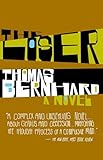 NG: For me, Franz Liszt’s Life of Chopin is one of the best books about music. Chopin’s letters and George Sand’s diaries are also excellent sources of inspiration. Thomas Bernhard’s The Loser is a fantastic book but there’s not much music in it. When I set out to write Wunderkind I wanted the book to look like a conductor’s score.
NG: For me, Franz Liszt’s Life of Chopin is one of the best books about music. Chopin’s letters and George Sand’s diaries are also excellent sources of inspiration. Thomas Bernhard’s The Loser is a fantastic book but there’s not much music in it. When I set out to write Wunderkind I wanted the book to look like a conductor’s score.
TH: You have this fascinating passage in the novel where Konstantin claims that Chopin is the only composer to write in the first person, speaking directly from his own experience, whereas other composers are writing in the third person, telling out about things that happened to other people. It’s an interesting observation coming in the middle of a novel in the first person. Do you share his impatience with the third person?
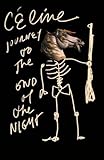 NG: I love the first person, in writing, in music, and in life. All great modern novels, as far as I am concerned, are in the first person (Celine’s Journey to the End of the Night, Beckett’s The Unnamable, etc.). Incidentally, all three of my Bulgarian novels were written in the third person, and I think there are many advantages of telling a story in an omniscient voice — the ease of changing stage sets, of doing travel, exposition, tension, and, very importantly, humor — but, in the end, I felt that I would never be able to go far enough in revealing consciousness in the third person. For me, the purpose of writing and reading is to understand and reveal the mind, and while there’s a great deal that can be glimpsed and inferred about the mind and the human condition from third person stories like Chekov’s “A Nervous Breakdown,” they can hardly compare with the authenticity, depth, and rawness of the first person narrator in Dostoevsky’s Notes from the Underground. After all, third person means someone else; first person means you.
NG: I love the first person, in writing, in music, and in life. All great modern novels, as far as I am concerned, are in the first person (Celine’s Journey to the End of the Night, Beckett’s The Unnamable, etc.). Incidentally, all three of my Bulgarian novels were written in the third person, and I think there are many advantages of telling a story in an omniscient voice — the ease of changing stage sets, of doing travel, exposition, tension, and, very importantly, humor — but, in the end, I felt that I would never be able to go far enough in revealing consciousness in the third person. For me, the purpose of writing and reading is to understand and reveal the mind, and while there’s a great deal that can be glimpsed and inferred about the mind and the human condition from third person stories like Chekov’s “A Nervous Breakdown,” they can hardly compare with the authenticity, depth, and rawness of the first person narrator in Dostoevsky’s Notes from the Underground. After all, third person means someone else; first person means you.
TM: Can you talk a bit about the frequent use of mythological material (Icarus; Prometheus; Erebus, god of Chaos; Erinyes, the Furies)? You seem to be rooting Bulgaria in this heroic, invented past; there were so many mentions of Thracians that I had to look them up — they are a tribe from Greece who were apparently the original settlers of Sofia — and was delighted to find that Orpheus was meant to have been king of the Thracian tribe of Cicones!
NG: You don’t have to do a lot of digging in Bulgaria to find the old gods. The pagan past is very palpable and vivid even today. There are cults of sun-worshipers who wake before dawn and perform oblations at sunrise; there are thousands of ancient temples and pagan sites in the mountains, a lot of them still waiting to be excavated. Orpheus is believed to have descended to the underworld by entering a cave in the Rhodope Mountains. On top of that, Bulgaria is a place where black magic has always played a very powerful role. When you hear that someone is a witch or a sorcerer, it’s not at all a joke. People pay a lot of money to destroy someone through magic.
TM: Were you really a monk in India? How did that come about?
NG: I’ve always wanted to live in India. Even as a small child I was convinced that if someone wanted to meet the wise men and learn the truth, he or she would have to go to India and live up in the mountains. So, one day, while I was still in college, I just packed my bags and left for India. I stayed there more than four years, and, yes, I was a Buddhist monk. I learned Tibetan and studied at one of the best Tibetan Buddhist universities.
TM: How did you end up in France?
NG: I’m not sure. It started as a why-not idea, and I’m still here, three years later.
Image courtesy Cara Tobe






